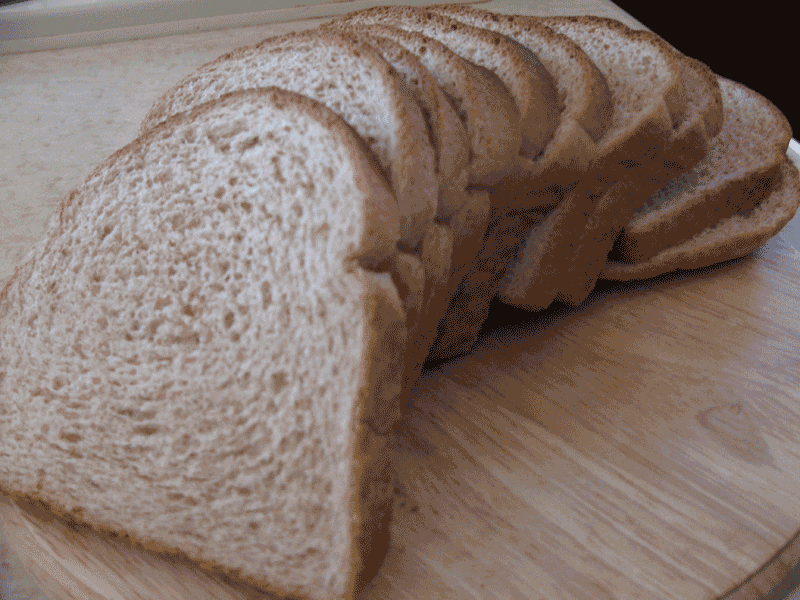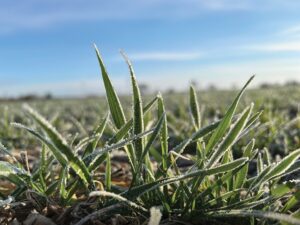In defence of wheat
HEALTHY GRAINS INSTITUTE WEIGHS IN
wheat has been called out as a ‘Frankengrain’, ‘the perfect chronic poison’, and ‘the root of all evil in the world of nutrition’ for nearly two years now; claims which have widely gone unchallenged, until the Healthy Grains Institute entered the ring.

Wheat’s reputation was taking it on the chin when a band of like-minded associations and businesses partnered to launch the Healthy Grains Institute in November 2012. The institute aims to specifically address Canadians’ concerns about the health of grain products and dispel increasingly popular myths.
Paul Hetherington, President & CEO of the Baking Association of Canada, has been an active member with the Institute. He has experienced his share of negative discussions about grain products. He believes food has undergone a paradigm shift in the way it is viewed by consumers.
“Food used to be seen as a positive with regards to overall nutrition; 100 years ago, many of the disease related issues facing society were a result of a lack of nutrition,” Hetherington says. “But 20 to 30 years ago that dynamic started to change, where food was now being viewed as a contributor to health concerns; it’s no longer, if you will, ‘the good guy’.”
bad press
Hetherington experienced what he feels was the first thrust of the anti-carbs movement, the Atkins diet, and says it has been one fad after another ever since. The Atkins trend passed but not before it had a significant downward impact on wheat volumes for 12 to 14 months. Hetherington is convinced these health-related discussions are not going away.
Lynda Kuhn, Interim Chairperson for the Healthy Grains Institute, thinks more consumer attention to the food they are eating is not necessarily a bad thing.
“You want consumers to be engaged and you want them to be empowered to make good food choices,” she says. “The concern of the Healthy Grains Institute is that they are, in many cases, having to make choices based on misinformation which is being propelled on social media channels like Facebook and Twitter and by some mainstream media.”
Hetherington likes to call it pseudoscience, but the misinformation both he and Kuhn are referring to is largely what inspired the organization to establish a Scientific Advisory Council to educate consumers with science-backed information and respond independently to media. Kuhn says these individuals are well respected in their fields and adept at determining when sound bites are provided out of context or are out-right fabrications. She also believes the public will appreciate that these individuals operate in an arms-length capacity, maintaining their independence.
“The Scientific Advisory Council is comprised of very strong, very experienced, academic, scientific and medical minds and they have very strong opinions on the kind of research they want to embark on, review, and the statements they make on behalf of the Healthy Grains Institute,” said Kuhn.
respecting science
Representing plant science on the panel of experts is Dr. Ravindra Chibbar, a professor and Canada Research Chair in Crop Quality at the University of Saskatchewan. He has been contributing to the institute with responses to Dr. William Davis, the author of the popular ‘Wheat Belly’ book, and his claims that wheat has been genetically modified beyond our ancestors’ recognition.
Dr. Chibbar says this particular book is a very difficult read for a scientist, being largely based on anecdotal experience rather than real science. He says this work neatly demonstrates the need to communicate to the public the difference between the type of doctors who practice medicine and the type who do research.
“When you do research, you publish in peer-reviewed journals where your work is looked at very critically and then, only if they are convinced, it gets published,” says Dr. Chibbar. “Wheat Belly is a book, which apparently wasn’t peer-reviewed; [Davis] makes comments that would never pass a litmus test for scientific publication.”
More than one media outlet has refused to publish Dr. Chibbar’s rebuttals to features making false claims against wheat products, further underlining the industry’s need to be proactive rather than reactive to these issues. Dr. Chibbar encourages farmers to ensure they are well informed about current issues and be prepared to appreciate the well-studied positive effects of grains, such as being an excellent source of dietary fibre and minerals and anti-oxidants, in addition to carbohydrates and proteins.
The need for everyone to work together in order to effectively combat the plethora of misinformation bombarding the public is even more emphatically articulated by Paul Hetherington.
“We need to have a supply chain response to this issue where everyone collectively responds to the consumer at large that these statements are wrong,” says Hetherington, “and not just because we have a personal investment in it; they are wrong because the science is saying they’re wrong.”
For more information on scientific studies related to grains and health, as well as other resources provided by dieticians and nutritionists, visit the institute’s website at www.healthygrains.ca. •
























